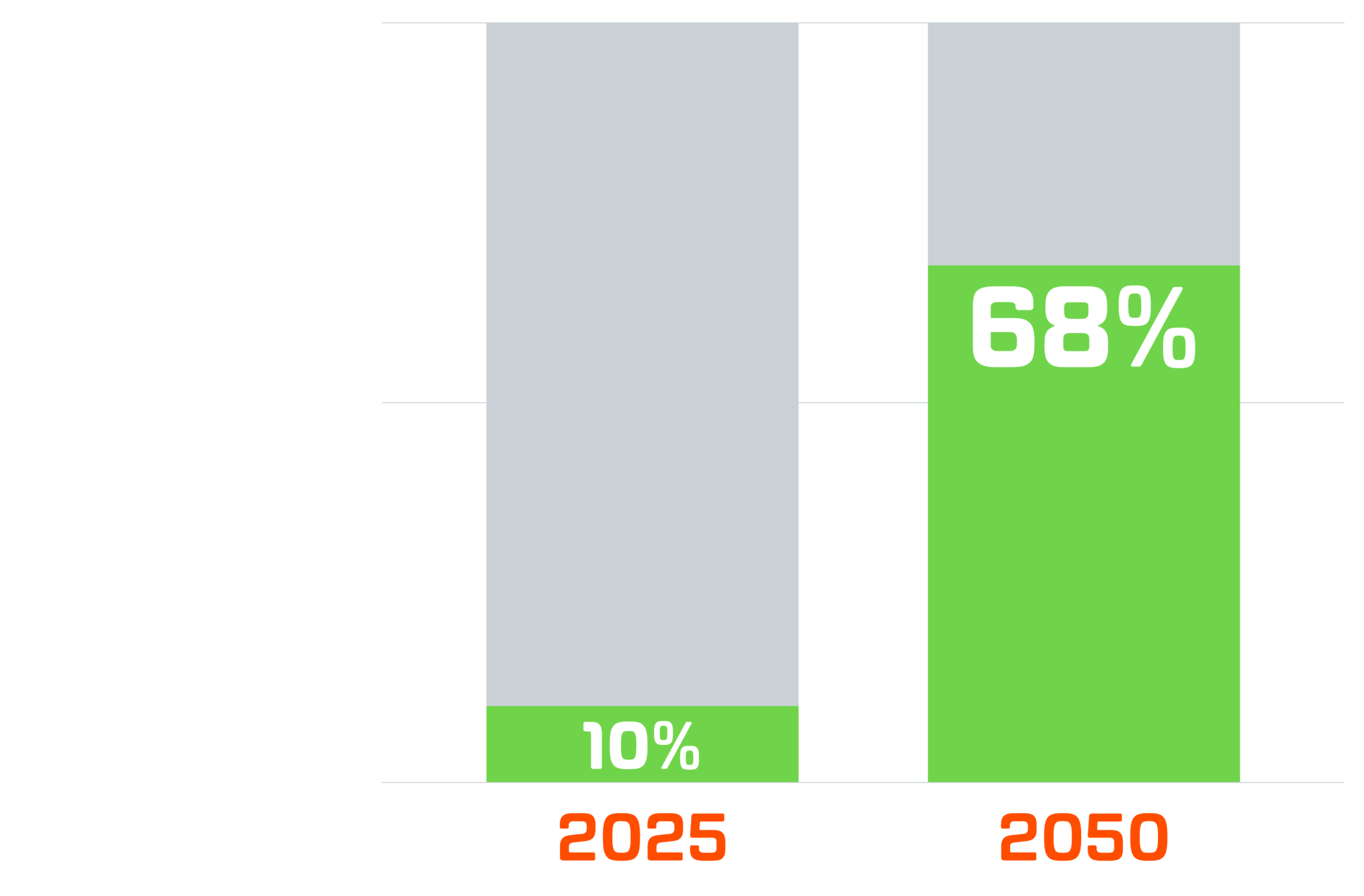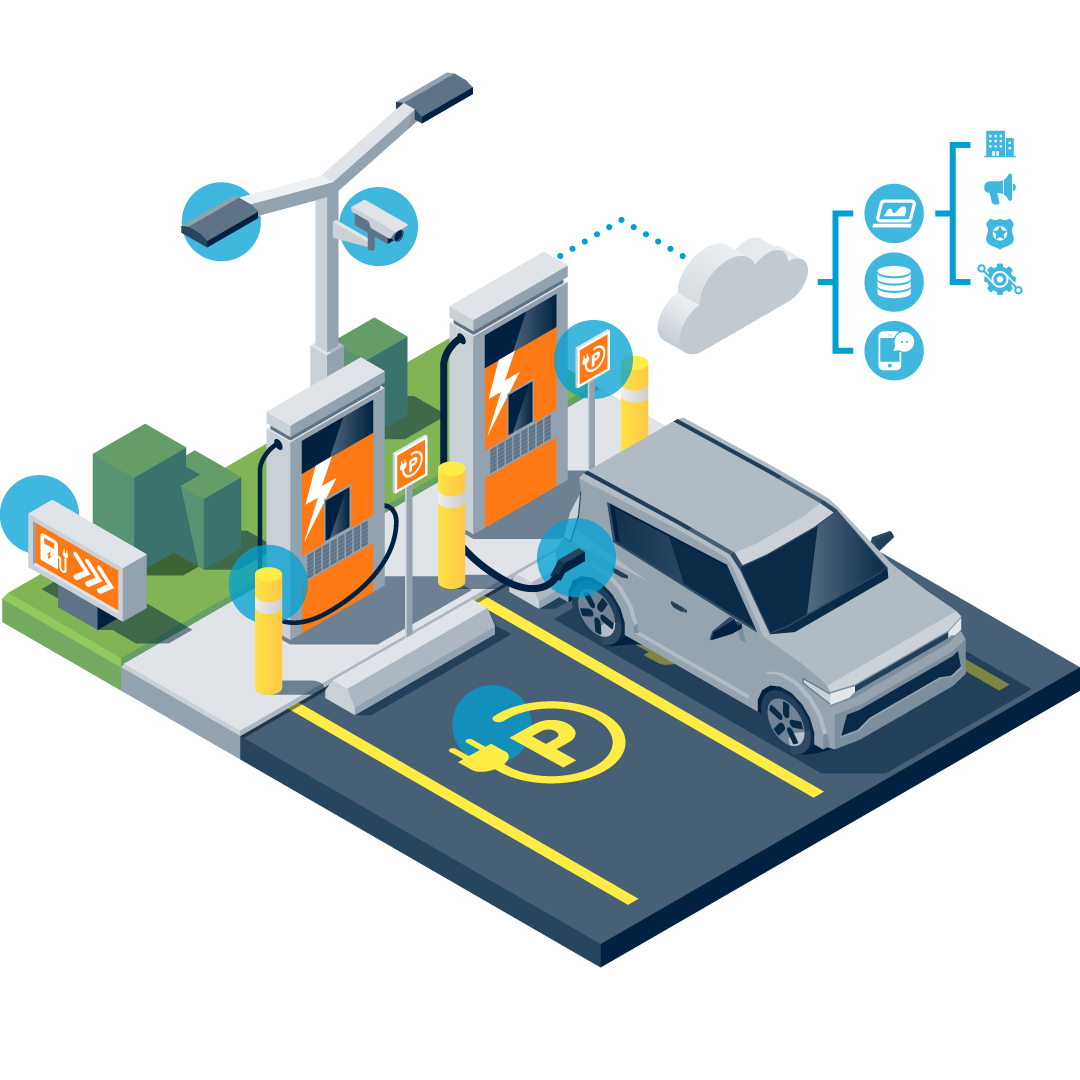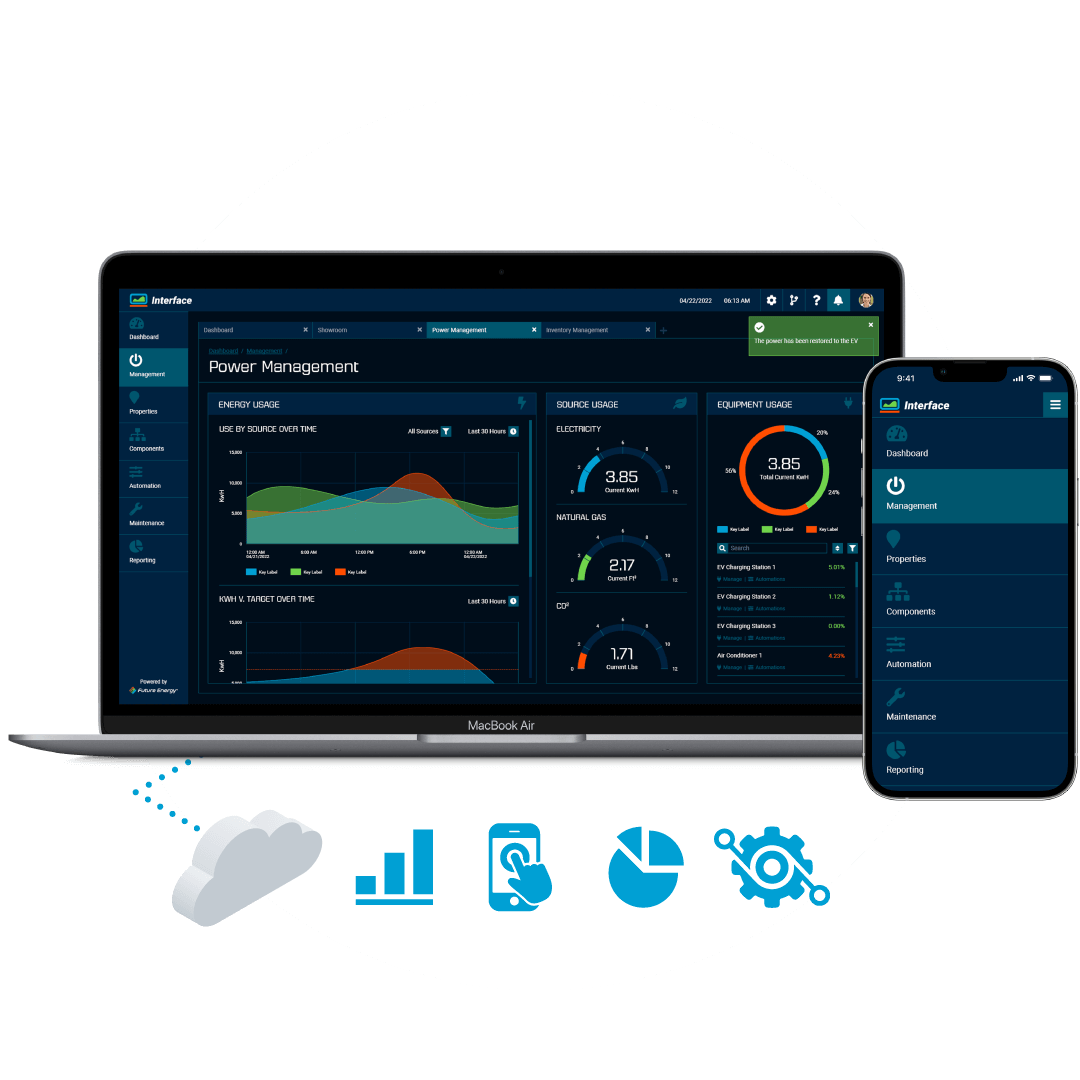Ev Chargers and Dealership Inventory Management: Interface

It’s Time to Respond To The Surging EV Interest
It’s no secret that consumer interest in electric vehicles (EVs) is on the rise. A dealership with electric vehicle chargers on the lot shows a commitment to educating potential customers. A dealership’s purchase of EV chargers goes beyond demonstrating a commitment to sustainability. Find out how installing EV chargers serves potential customers while helping with inventory control.
Fifteen countries worldwide have announced plans to phase out vehicles relying on combustion engines, according to a BloombergNEF report. In fact, the report states by 2025 EVs will comprise 10% of passenger vehicle sales worldwide. And by 2040, 68% of vehicles sold will be electric.
A proactive dealership understands that the time to respond to surging consumer interest is now. In the words of retired US General Eric Shinseki: “If you dislike change, you’re going to dislike irrelevance even more.” For your dealership, this means that building an EV infrastructure—particularly showcasing EV chargers on your lot—is critical. You not only address rising consumer interest but also take a major step toward managing the inventory of the future.

Tracking Vehicles on The Lot
Conventional vehicles with combustion engines require a manual process to monitor fuel levels. Plus, looking for a particular car on the lot often involves walking the aisles and pressing a key fob until the porter finds the correct vehicle. As a result, a dealership that relies on porters for out-lot management duties risks inefficiencies in time management and other resources.
By contrast, a digital platform for intelligent inventory management optimizes value in time and money. How? For starters, Future Energy offers a physical EV charger solution known as ChargeParc™ which integrates seamlessly with our turnkey intelligence platform, known as Interface, so that dealerships gain insights into operational data throughout the business and better manage operations and, ultimately, sales and profit.
Together, these solutions can locate an EV remotely by its vehicle identification number, eliminating the need for dealership personnel to search manually for a particular car.

Future Energy’s EV Chargers Save Your Employees Time
Conventional vehicles with combustion engines require a manual process to monitor fuel levels. Plus, looking for a particular car on the lot often involves walking the aisles and pressing a key fob until the porter finds the correct vehicle. As a result, a dealership that relies on porters for out-lot management duties risks inefficiencies in time management and other resources.
By contrast, a digital platform for intelligent inventory management optimizes value in time and money. How? For starters, Future Energy offers a physical EV charger solution known as ChargeParc™ which integrates seamlessly with our turnkey intelligence platform, known as Interface, so that dealerships gain insights into operational data throughout the business and better manage operations and, ultimately, sales and profit.
Together, these solutions can locate an EV remotely by its vehicle identification number, eliminating the need for dealership personnel to search manually for a particular car.
Future Energy’s EV Chargers Integrate with Your System
Interface integrates all of your dealership’s systems into one easy-to-use interface in real time. Interface pulls in data from lighting, video surveillance, EV chargers and other systems from your dealership’s lot.
In addition, Interface scales to the lot size of a given dealership. The platform integrates data from each electric or hybrid vehicle regardless of how many EVs are on the dealership’s lot. Interface also can integrate EV charge level monitoring into existing or new vehicle inventory for purely electric or hybrid “mixed fleet” management. This includes gas, EV battery, plug-in hybrids, PHEV, and 12v battery and error codes in real time.
Improving The Test-Drive Experience
In 2019, the Sierra Club released the first nationwide study of a consumer’s experience shopping for an EV. In the study, volunteers contacted 909 auto dealerships in all 50 states to inquire about EVs.

Providing Fully Charged Test Vehicles
According to the study, in 28% of the dealerships that the volunteers visited, salespeople provided no information about how to charge an EV.
Furthermore, volunteers reported that in states outside of California, just 34% of dealers had fully charged EVs ready for a test-drive. In addition, the report found that 3% of dealers had EVs that were not charged at all.
Even in California—one of the leading states for EV adaptation—just 73% of dealers had EVs that were fully charged for a test-drive. And 10% of dealers had vehicles that were partially charged.
Enhancing The Customer Experience
EV chargers on a dealership’s lot enhance the customer experience in two ways. First, EV chargers integrated into a monitoring dashboard such as Interface allow for checking vehicle charge levels remotely. Then, the dealership can easily top off any vehicles low on charge with the electric vehicle chargers on the retail lot. This helps not only with test drives but also allows a dealer to deliver adequately charged vehicles to customers who have made a purchase.
Providing Mobile Compatibility
In addition to providing a better experience for the consumer, EV chargers and dealership inventory management also benefits employees. Staff who might have had to spend time tracking and maintaining vehicles save time through remote monitoring features.
Furthermore, transforming inventory management from an analog to a digital environment means managers can monitor inventory from anywhere. No longer do company leaders have to be at their desks to track vehicles on the retail lot. Interface monitors and controls charging stations and other company services, such as lighting and video surveillance, from one screen on any device from anywhere. And Interface sends alerts for EV inventory charge levels when they get too low.
Controlling Power Consumption
Power consumption is an important element to monitor in any dealership, whether you sell a hundred cars or 10,000. Customers will be happy if you charge an EV’s battery when you service the vehicle but absorbing the cost over time could cost your dealership tens of thousands of dollars in unanticipated electricity cost.

Power Management
An electric vehicle’s energy consumption is measured in kilowatt-hours per 100 miles (kWh/100 miles). To figure out the cost of charging a vehicle, multiply the electric rate by the EV’s kWh/100 figure.
Electric rates varg by time of day, by season, and by a company’s peak load demand. Peak load demand refers to the highest demand your company places on the electrical grid during a specified period.
Interface networks with utility companies that require data monitoring, and it can help your dealership make targeted adjustments to its energy use. Proactive alarming and load shedding identifies when your dealership is close to peak load demand and keeps you under peak load. This keeps your electric rate down and ultimately saves money.
EV Certification
Many manufacturers are offering EV certification to their dealers, which requires not only additional training for sales and service personnel but also adding and upgrading EV chargers. Cadillac, for example, is requiring its dealerships to install charging stations, according to Automotive News. And Ford dealers who desire EV certification must have electric vehicle chargers for customers as well as the service bay.
Smart dealership owners look at EV chargers not just as a piece of hardware but as a way to manage process costs. When you monitor charging at your service bays, you can control costs while providing charging to your customers. And when you need to charge your own inventory, integrated data management tools such as Interface can help prevent additional charges.
Embracing The Future of EVs
The automotive market is changing rapidly. The integration of EV chargers and dealership inventory management means proactive control through data. Gain new insights into your dealership’s business and inventory by using Interface’s analytic tools. Contact Future Energy today to find out how our ChargeParc and Interface solutions work seamlessly to simplify your dealership’s inventory management and increase your return on investment, and learn more Here.

Included With Future Energy’s EV Dealership Solution


Future Energy’s complete, EV vehicle charging solution delivered as a turn-key environment.


Future Energy’s data visualization and management dashboard that connects all intelligent building systems.


Future Energy’s intelligent building systems solution that integrates your property’s lighting, climate, safety monitoring and more.
Rebates & Financial Incentives
We work with technology embedded hardware that involves aggressive government and utility tax credits, rebates and grants that drastically improve your cash flow. Contact us to find out what funding is available helping you choose the right hardware. Our team will work with you and the incentive program holders to get your application approved and processed quickly.













Let’s Connect
Designing smart building connectivity begins with a personal connection. We’ll discuss your goals, budget and timeline, and take it from there.
